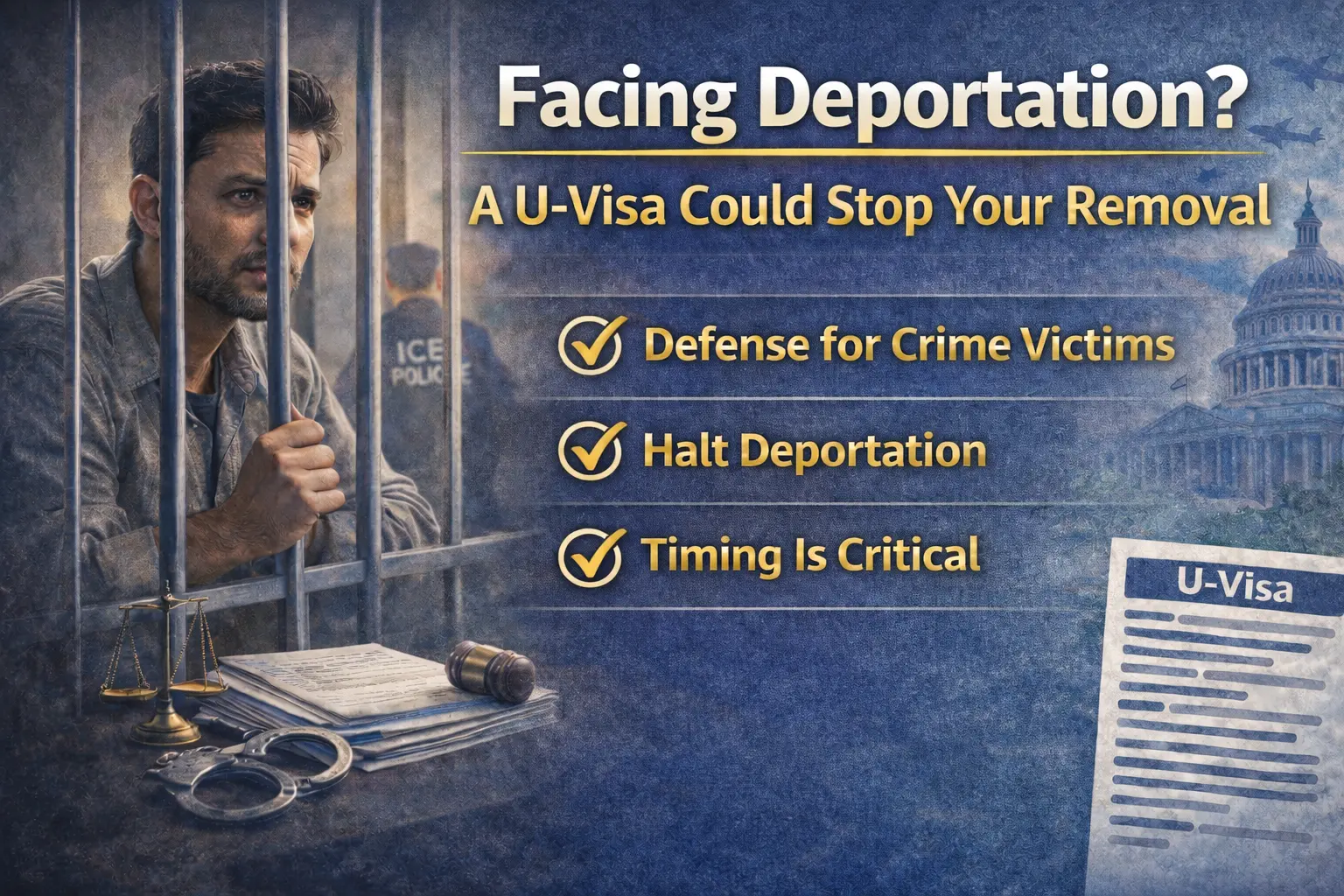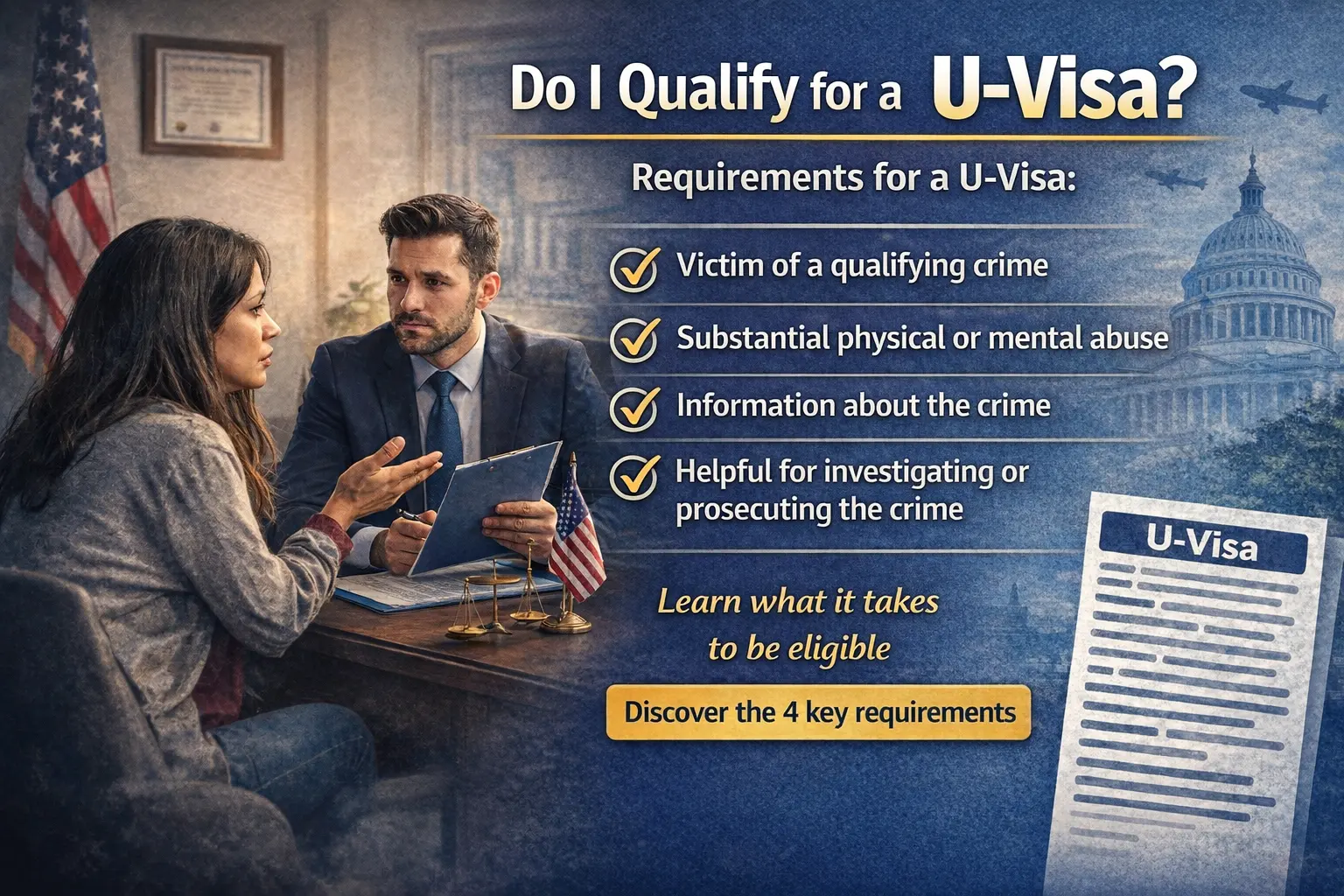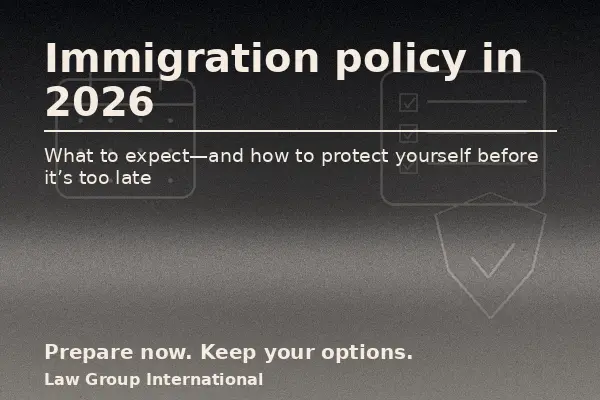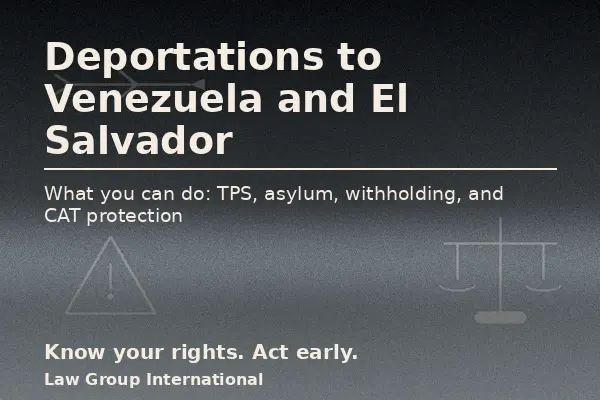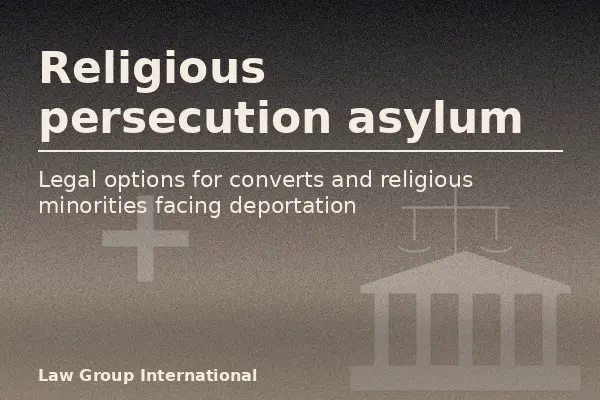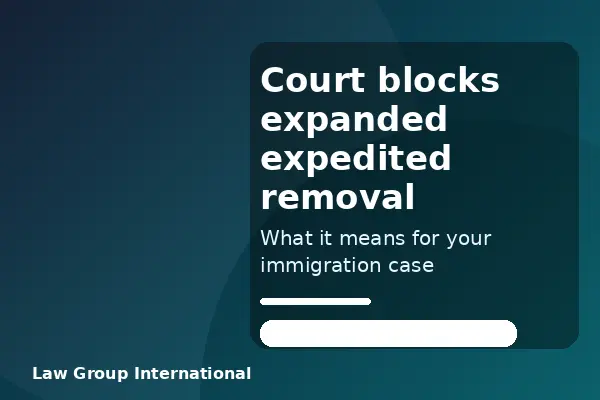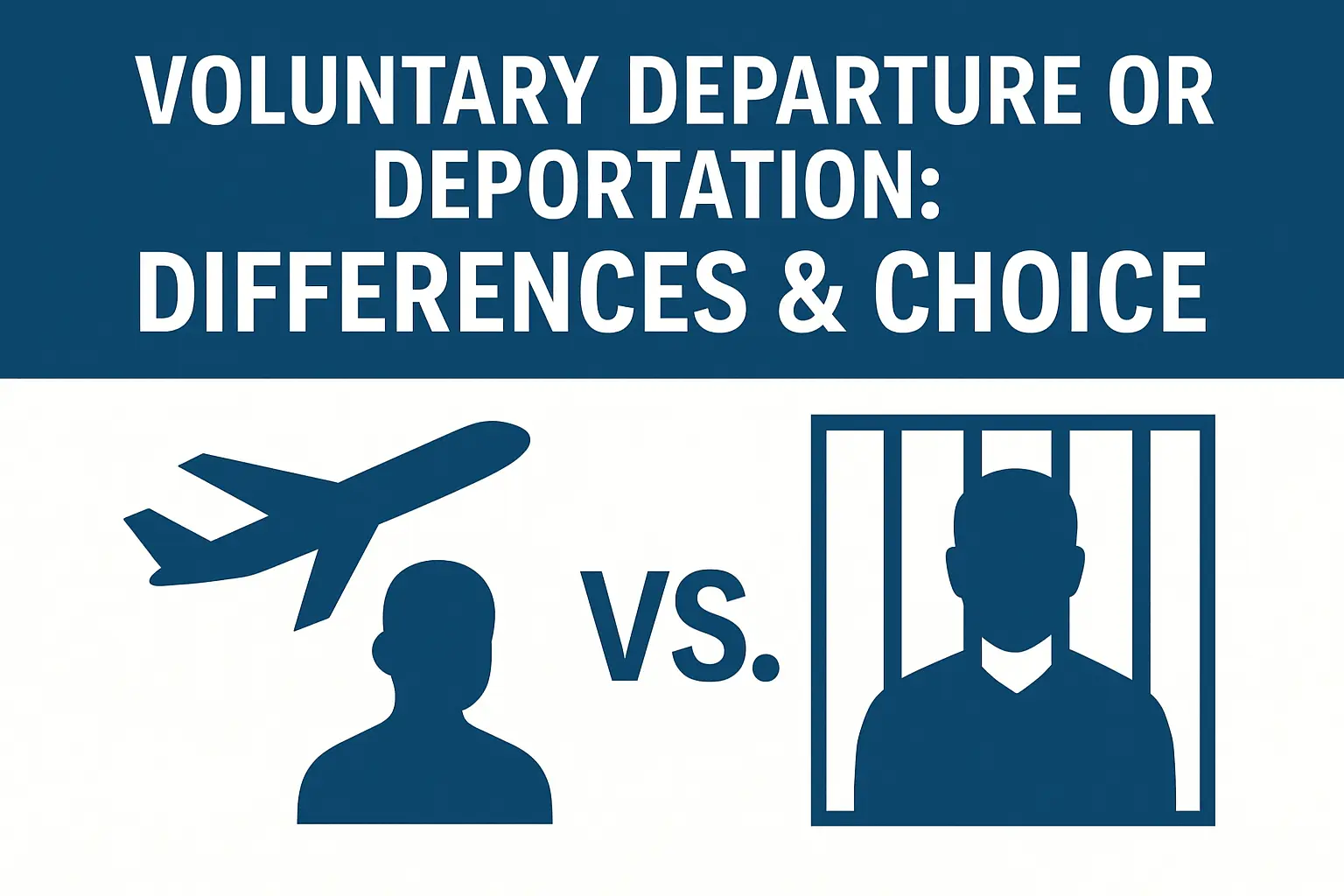The Laken Riley Act: How Minor Criminal Charges Now Lead to Mandatory Deportation in 2025
In March 2025, Juan Martínez, a lawful permanent resident who had lived in the United States for 20 years, was pulled over for a traffic stop in Texas. His “crime”? Not wearing a seatbelt. That minor infraction brought him into contact with local law enforcement, and soon after, ICE. Under the new Laken Riley Act, ICE detained him immediately, initiating deportation proceedings despite no criminal conviction.
This scene is no longer an anomaly, it’s the harsh new reality for many immigrants. On January 29, 2025, President Trump signed the Laken Riley Act, his first major legislative victory of the year. This law mandates ICE detention for immigrants charged with certain crimes, even if their case hasn’t reached a conviction.
Suddenly, minor charges like DUI, petty theft, or traffic violations are no longer “low risk.” For many, a simple arrest is now the trigger for a fight for their freedom, and their future in the U.S.
In this article, Law Group International explains exactly what the Laken Riley Act is, which charges can lead to deportation, why a charge alone, not just a conviction, matters, and what you can do to defend yourself. We also offer critical advice on coordinating between criminal defense and immigration attorneys, because in 2025, one wrong decision can change everything.
What Is the Laken Riley Act?
The Story Behind the Laken Riley Act
The Laken Riley Act is named for 22-year-old Laken Riley, a nursing student at the University of Georgia who was tragically murdered in February 2024. The perpetrator, José Ibarra, a Venezuelan immigrant, had a prior arrest for shoplifting but was released by local authorities without being handed over to ICE. Lawmakers used her case as the catalyst for a new, stricter immigration enforcement law. Congress passed the measure with bipartisan support, and Trump signed it into law on January 29, 2025, making this his first major legislative achievement of his second term.
What the Laken Riley Act Requires
Key provisions of the law include:
Mandatory DETENTION for Any Criminal Charge
- ICE must detain any immigrant (documented or not) charged with theft, burglary, shoplifting, larceny, and related offenses.
- Detention applies even if the case is pending or charges are later dismissed; a conviction is not required.
- No bond or release is permitted during immigration proceedings.
- The law applies retroactively: old charges, even if dismissed or resolved years ago, can now trigger detention.
State Authority to Sue
- States can sue the federal government (DHS) if immigration law is not enforced.
- State attorneys general can hold DHS accountable and impose financial penalties for non-compliance.
Broader Definition of Criminal Activity
- “Theft” is broadly defined to include misdemeanor shoplifting.
- Attempts and conspiracy counts are included, not just completed crimes.
- There is no minimum value threshold for theft charges.
- State-level charges qualify; no need for a federal offense.
No Discretion for ICE Officers
- ICE officers must issue detainers for covered offenses.
- There is no “case-by-case” review or discretionary refusal: detention is mandatory.
- Previous enforcement priorities are overridden; ICE’s hands are tied by the law.
Before and After: A Legal Comparison
| Before Laken Riley Act | After Laken Riley Act (from Jan 29, 2025) |
| ICE focused primarily on convicted criminals | ICE must detain anyone charged with covered crimes |
| Bond/release often possible | No bond; mandatory detention |
| ICE discretion in issuing detainers | Zero discretion, detainers must be issued |
| Conviction required for many cases | A mere charge triggers detention |
| Some theft/property crimes ignored | All theft offenses trigger mandatory detention |
| Only federal enforcement | States can now enforce and sue federal government |
What Criminal Charges Trigger Deportation Under the Laken Riley Act?
Crimes Specifically Covered by the Laken Riley Act
The law makes any value theft a trigger, including:
- Shoplifting (even very low-value items)
- Petty theft
- Grand theft
- Theft of services
- Receiving stolen property
- Unauthorized use of a vehicle (including temporary use)
It also covers burglary offenses:
- Residential, commercial, or auto burglary
- Attempted burglary
- Possession of burglary tools
And larceny:
- Grand or petit larceny
- Larceny by trick, embezzlement, or other forms
Critical note: Even if a charge is later dropped, reduced, or you are ultimately found not guilty, ICE can still detain you and initiate deportation proceedings while the criminal case is ongoing. Under the Laken Riley Act, the charge itself, not the conviction, triggers mandatory detention.
Other Criminal Charges That Also Carry High Risk
Beyond the specific Laken Riley offenses, these categories also pose serious deportation risk in 2025:
- Drug-related offenses: even simple possession or paraphernalia.
- Violent crimes: domestic violence, assault, weapons offenses.
- DUI / Traffic offenses: DUI, reckless driving, driving without a license, hit-and-runs, vehicular assault.
- Public order crimes: trespassing, disorderly conduct, public intoxication.
- Fraud/document offenses: identity theft, false statements, welfare fraud.
Real Cases: Deported for Minor Offenses in 2025
Here are several documented examples (note: the names and details may be reconstructed to protect privacy, but reflect real trends):
- Houston, Texas (Feb 2025): Arrested for failing to wear a seatbelt. ICE detainer issued, deported within days. U.S.-citizen spouse and children left behind.
- Los Angeles, California (Mar 2025): Green card holder accused of shoplifting a $12 item. Charge alone triggered removal proceedings and detainment under the new law.
- Chicago, Illinois (Apr 2025): DACA recipient arrested for first-offense DUI (0.09 BAC). ICE placed a detainer; deported after decades in the U.S.
- Phoenix, Arizona (May 2025): Visa overstayer married to a U.S. citizen. Arrested in a domestic disturbance; despite later dismissal of charges, ICE began deportation proceedings based on the original arrest.
In each of these cases, there was no criminal conviction, yet ICE still enforced removal, because of the expanded enforcement under the Laken Riley Act.
Understanding the Difference Between a Charge and a Conviction
Charge vs. Conviction: What’s the Difference?
- Criminal Charge: A formal accusation made by the prosecutor. It does not mean guilt. Under the Laken Riley Act, a charge alone triggers detention and deportation risk.
- Conviction: The result of a plea or a criminal trial. It’s a legal finding of guilt, and can have long-term immigration consequences. But since 2025, a conviction isn’t required for ICE to act.
The Criminal Justice Process: Step by Step
- Arrest – Charge Filed
- ICE can detain you right here, even before trial.
- Arraignment
- First court appearance, reading of charges, bond hearing.
- ICE may issue a detainer while you’re in county jail.
- Pre-Trial / Plea Negotiations
- This is the critical moment: what plea you accept can change everything for your immigration future.
- Trial or Plea
- If you plead guilty or go to trial and are found guilty, you risk a conviction.
- Sentencing / Conviction
- If convicted, immigration consequences may deepen, but now, even before this stage, you might already be at risk.
Why This Matters for Immigration
| Scenario | Before Laken Riley Act | After Laken Riley Act |
| Arrest for shoplifting | ICE might not act on charge alone | Mandatory ICE detention |
| Charges dismissed later | Often no immigration consequences | You could already be in removal proceedings |
| Plea with probation | Immigration risk, but not always severe | Even a “good” plea can be disastrous |
Before 2025, ICE’s focus was often on convictions. Now, under the Laken Riley Act, mere charges, even minor ones, can trigger detention and deportation. That’s why you must consult an immigration attorney before accepting any plea deal.
The Critical Mistake: Accepting a Plea Deal Without Immigration Consultation
Why Criminal Defense Attorneys Alone Are Not Enough
Criminal defense lawyers typically focus on minimizing jail time or avoiding harsh sentences. But they are often not experts in immigration law. What feels like a “good deal” in criminal court can be a disaster when it comes to your immigration status.
The landmark case Padilla v. Kentucky (2010) held that criminal defense attorneys have a constitutional duty to advise their clients about immigration consequences of plea deals. Yet many attorneys fail to fulfill this obligation, either because they lack immigration expertise or assume “this charge is minor.” That assumption is dangerously wrong now.
Examples of “bad bargains” include:
- Suspended Sentence Trap: No jail time, but a conviction that triggers deportation.
- Deferred Adjudication Trap: Charges dismissed after probation, but immigration law may still count it as a conviction.
- Reduced Charge Trap: Felony reduced to misdemeanor, but the resulting plea may still fall under “aggravated felony” in immigration statutes.
Your Rights Under Padilla v. Kentucky
- Your criminal attorney must warn you if a plea can lead to deportation.
- If they fail to do so, you may have grounds to withdraw your plea based on ineffective assistance of counsel.
- This principle applies even to previous convictions, if you were never properly advised.
Checklist: Before Accepting Any Plea Deal
Do not accept a plea until you can check all the boxes below:
- I understand exactly what crime I am being asked to plead to.
- I know the maximum sentence (jail/probation) and conditions.
- My criminal attorney has explained all alternatives.
- I understand I am giving up the right to trial.
And, critically for immigration:
- I have consulted with an immigration attorney, not just my criminal attorney.
- The immigration attorney reviewed each possible plea.
- I understand if the plea makes me deportable or inadmissible.
- I’ve explored alternative plea options to minimize immigration harm.
Other important points:
- Have the attorneys coordinate together.
- Ask for written documentation of the immigration advice.
- Know you may be able to refuse the plea or ask to withdraw if you weren’t properly advised.
What to Say to Your Criminal Attorney
Here’s a script you can use:
“Before accepting any plea deal, I need to talk to an immigration attorney. I know you are a strong criminal defense attorney, but immigration law is separate and complex. I need a written opinion from an immigration lawyer about how each plea will affect my status. Under Padilla v. Kentucky, I have the right to fully understand those consequences. Can you pause plea talks until I get that advice?”
If your criminal attorney pressures you (e.g., “sign today,” “don’t worry, it’s just a misdemeanor”), you can firmly reply:
“I appreciate your work, but my future in this country depends on more than just the criminal outcome. I will not accept any deal until I understand the immigration impact.”
Legal Defenses Against Deportation for Criminal Charges
Post-Conviction Relief: Fixing Past Guilty Pleas
If you already have a criminal conviction, there may still be hope:
- Ineffective Assistance of Counsel (Padilla claim): If your attorney didn’t warn you of immigration risks, you might reopen your case.
- Newly Discovered Evidence: Sometimes, new proof (witnesses, documents) can challenge your conviction.
- Prosecutorial Misconduct: If the prosecutor withheld evidence or abused their power, results can be challenged.
- Actual Innocence: Rare but powerful. If you’re truly innocent, you might overturn the conviction.
Post-conviction relief can be hard, and deadlines are often tight. But if done well, coordinating both criminal and immigration attorneys, it can make a life-saving difference.
Cancellation of Removal (FOR Deportation Defense)
There are two main pathways:
- Non-LPR Cancellation of Removal: For non-permanent residents who have lived in the U.S. for at least 10 years, show “good moral character,” no disqualifying crime, and that your removal would cause “exceptional and extremely unusual hardship” to a qualifying U.S. citizen or green-card relative.
- LPR Cancellation of Removal: For green card holders with at least 5 years as LPR and 7 years continuous residence, no aggravated felony, and worthy of discretion.
Note: Certain criminal convictions (like aggravated felonies) may disqualify you entirely.
212(h) Waiver: Waiving Criminal Grounds of Inadmissibility
If you’re applying for a green card, a 212(h) waiver might help you overcome criminal bars:
- This waiver can forgive certain crimes involving “moral turpitude.”
- You must show extreme hardship to a U.S. citizen or LPR spouse or parent.
- Aggravated felonies are generally not eligible.
- Timing matters, especially if you committed multiple crimes.
Adjustment of Status in Removal Proceedings
If you’re in deportation proceedings and have a qualifying family relationship (e.g., U.S. citizen spouse), you might apply to adjust your status, even after the Laken Riley Act detention:
- You may need a 212(h) waiver depending on your criminal record.
- You’ll need to show that you deserve “favorable exercise of discretion,” despite criminal charges.
- If successful, you can stop deportation and obtain lawful permanent residence.
How Criminal and Immigration Attorneys Work Together
The Coordination Process: Step by Step
Phase 1: First 48 Hours After Arrest
- Criminal attorney fights for bond, reviews the charge, reviews criminal evidence.
- Immigration attorney assesses your status, your prior record, and evaluates risk of mandatory detention.
- They share information and plan both criminal and immigration strategies together.
Phase 2: Pre-Plea Negotiation (Weeks 1–8)
- Criminal attorney negotiates charge/plea with prosecution.
- Immigration attorney analyzes each possible plea’s immigration consequences, suggests safer alternatives, and documents advice.
- Together, they push for plea options that avoid deportability.
Phase 3: Post-Conviction (if needed)
- Criminal attorney may file motions for post-conviction relief/reversal.
- Immigration attorney works in removal proceedings to apply for cancellation, waivers, or other relief.
- They coordinate ongoing appeals and defensive strategies.
Important Questions to Ask Your Attorneys
For your criminal attorney:
- Have you discussed my immigration status with an immigration attorney?
- What are the immigration consequences of every plea option?
- Can we negotiate a plea that doesn’t trigger deportation?
- Will you work directly with my immigration attorney?
For your immigration attorney:
- Do you understand the specific criminal charges I face?
- What relief options are available if I’m convicted (or if I’ve already been convicted)?
- Can you join plea negotiations?
- What is the risk if I accept a plea vs. go to trial?
For both, together:
- Can we have a joint meeting to map out strategy?
- What will happen in each possible outcome (trial, plea, post-conviction)?
- How much will joint representation cost?
Frequently Asked Questions (FAQ)
Can I Be Deported for a DUI [Driving Under the Influence]?
Yes. A DUI charge, even before conviction, can trigger ICE detention under the Laken Riley Act if a detainer is issued. A DUI conviction may also qualify as a crime involving moral turpitude or aggravated felony, depending on the circumstances. If you’re charged, you should talk to both a criminal defense and an immigration attorney immediately.
Will Shoplifting Get Me Deported?
Yes, under the Laken Riley Act, shoplifting of any value counts. Even if the item is inexpensive (under $50), ICE can detain you based on the charge alone. Even if the case is resolved or dismissed, deportation proceedings may still start from the original charge.
What Is an Aggravated Felony in Immigration Law?
An “aggravated felony” in immigration law is very different from a felony in criminal court. Under INA Section 101(a)(43), it includes many crimes, even some misdemeanors under state law, such as theft, burglary, fraud, drug trafficking, and more. A conviction for an aggravated felony can make you ineligible for most forms of relief and lead to mandatory detention.
I Was Arrested But Not Convicted. Can I Still Be Deported?
Yes. Thanks to the Laken Riley Act, a mere charge, without conviction, can lead to mandatory detention and initiation of removal proceedings. ICE no longer needs a conviction to act in many cases, which makes early legal intervention crucial.
Can a Green Card Holder Be Deported for a Criminal Charge?
Absolutely. Lawful permanent residents (green card holders) are not immune. Criminal charges, especially those covered by the Laken Riley Act, can trigger removal even if there is no conviction or even if the charge is “minor.” If you’re a green card holder facing criminal charges, consult both criminal and immigration counsel.
What Should I Do if ICE Contacts Me About an Old Conviction?
Do not talk to ICE without a lawyer. You have the right to remain silent and ask for an attorney. Depending on the outdated crime, you may have defenses, such as post-conviction relief, cancellation of removal, or waivers. Reach out to an immigration attorney immediately.
Can I Withdraw My Guilty Plea If My Attorney Didn’t Warn Me About Immigration Consequences?
Possibly. Under Padilla v. Kentucky, you may be able to challenge your plea if you weren’t properly advised. You must show that: (1) your attorney’s performance was deficient, (2) that deficiency affected your decision, and (3) you would have made a different choice with proper advice. Time limits usually apply.
How Much Does It Cost to Hire Both a Criminal and Immigration Attorney?
Costs vary, but in many cases:
- Criminal defense for a misdemeanor: ~$2,500–$10,000
- Criminal defense for a felony: $10,000–$50,000+
- Immigration deportation defense: $5,000–$15,000+, plus fees for applications (e.g., cancellation, waivers)
While expensive, the cost of deportation, separation from family, loss of life in the U.S., lost income, is often far higher. Many attorneys offer payment plans, and there is non-profit legal aid for eligible individuals.
What Crimes Make Me Permanently Inadmissible to the U.S.?
Some crimes bar reentry permanently, especially aggravated felonies, certain drug offenses, serious crimes like murder, national security crimes, and certain trafficking offenses. Other crimes may be waivable, but each case is different. Consult an immigration attorney to understand your eligibility.
Is There a Statute of Limitations on Deportation for Old Crimes?
No. There is no statute of limitations for removal based on criminal convictions. ICE can pursue deportation for decades-old crimes, even if you’ve completed your sentence. That said, time since conviction can be a favorable factor when applying for relief like cancellation of removal. Talk to an immigration attorney to assess your risk and options.
Criminal-Based Deportations: Data and Trends (2025)
Here are the major trends and data points emerging in 2025 under the Laken Riley Act:
| Metric | 2024 (Pre-Laken Riley) | 2025 (Since Law’s Enactment) | Change |
| ICE arrests with no criminal conviction | ~42% | ~59% | +17 points |
| ICE arrests from local jails | ~61% | ~52% | ‒9 points |
| Arrests for theft/ shoplifting | ~8,400 | ~41,200 | +390% |
| Arrests for traffic offenses | ~1,200 | ~18,900 | +1,475% |
| Average time from charge to deportation | ~180 days | ~12 days | ‒93% |
| Deportees with U.S. citizen children | ~11,000 | ~67,000 | +509% |
Demographic breakdown (2025):
- Immigration status of those arrested:
- Undocumented: ~62%
- Green card holders: ~28%
- Visa holders: ~7%
- Others (DACA, TPS, parole): ~3%
- Time living in the U.S.:
- Less than 5 years: ~18%
- 5–10 years: ~23%
- 10–20 years: ~34%
- 20+ years: ~25%
- Family data:
- 58% had U.S.-citizen children
- 22% married to U.S. citizens
- 8% had U.S.-citizen parents
- 12% had no U.S.-citizen family
Social and Economic Impact:
- Est. 89,000 U.S.-citizen children affected by a parent’s deportation in 2025
- Average household income loss after deportation: –68%
- Estimated $8.2 billion in lost wages and taxes due to criminal-based deportations
- Labor shortages reported in key industries like construction, hospitality, and agriculture in certain regions
These numbers illustrate the massive scale of enforcement under the Laken Riley Act, and how deeply it affects immigrant families and communities.
Protecting Your Future: Don’t Make Decisions Without Legal Counsel
Key Takeaways:
- The Laken Riley Act makes any criminal charge, not just convictions, a basis for mandatory ICE detention and deportation.
- Even seemingly minor offenses, like shoplifting or traffic violations, can lead to removal.
- In 2025, 59% of ICE arrests are people without a conviction.
- Accepting a plea deal without consulting an immigration attorney is the most dangerous mistake you can make.
- Coordinated defense, working with both criminal and immigration lawyers, is essential.
- There are legal defenses: post-conviction relief, cancellation of removal, waivers, and more, but timing and strategy matter.
Who Should Act Now:
- If you are currently facing criminal charges: Do not accept any plea without first consulting both a criminal defense and immigration attorney. Your choice now could determine if you stay in the U.S. with your family.
- If you have an old criminal conviction: Contact an immigration attorney immediately. You may still qualify for relief through post-conviction reopening, cancellation, or waiver.
- If you’re a green card holder: Know that minor criminal charges still put you at risk. Even decades in the U.S. don’t guarantee immunity.
Law Group International’s Dual-Attorney Approach:
- Our criminal defense attorneys deeply understand how immigration law works.
- Our immigration attorneys analyze each plea or charge’s impact on your future.
- We work as a team, criminal + immigration, to minimize risk and maximize protection.
- We offer emergency representation if ICE detains you, and we help prepare long-term strategies for relief.
Do not take a plea until you talk to us. One wrong decision can change your life. Law Group International is here, ready to defend both your freedom and your right to remain in the United States.
Call us today for an emergency consultation. Consultas en español disponibles 24/7. Payment plans offered.
Explore More Immigration Topics
U-Visa and Deportation: How This Visa Can Save Your Case
January 19, 2026
U-Visa requirements 2026: Complete eligibility guide
January 13, 2026
Immigration Policy in 2026
January 1, 2026
Deportations to Venezuela and El Salvador
December 31, 2025
Religious Persecution Asylum
December 30, 2025
Northern Virginia Immigration Court
December 20, 2025
Federal Court Blocks Expanded Rapid Deportations
December 16, 2025
What to Do If ICE Comes to Your Door
December 14, 2025
Voluntary Departure vs. Deportation
December 12, 2025

